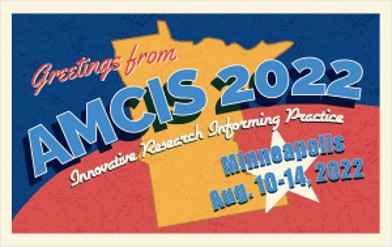SIG Meta - Meta Research in Information Systems
Loading...
Paper Type
ERF
Paper Number
1424
Description
Voice research has traditionally used a deliberative perspective, in which individuals carefully calculate individual and situational facts to determine whether or not to speak up. Voice offers information systems scholars many avenues for research as prior literature indicates its benefits such as reducing cyberbullying in online settings, advocating for equal rights, and engaging in social movements through social media. These studies examine how individuals can express their concerns to induce change. To date, IS scholars rarely study the construct of voice directly but discuss the importance of reporting wrongdoing or advocating for others. Besides, the majority of studies examining voice are situated in organizational contexts and little research has examined voice in technology-mediated settings. As a result, there is a lack of systematic understanding of the underlying factors that facilitate or inhibit voice behavior when information and communication technologies are used (ICTs). This paper synthesizes current research on voice, making connections between divergent literature (i.e., management and information systems) to develop a framework for studying voice in online settings.
Recommended Citation
Hadavi, Yasamin and Petter, Stacie, "Speak Up! Examining Voice as a Construct in Information Systems Literature" (2022). AMCIS 2022 Proceedings. 8.
https://aisel.aisnet.org/amcis2022/sig_meta/sig_meta/8
Speak Up! Examining Voice as a Construct in Information Systems Literature
Voice research has traditionally used a deliberative perspective, in which individuals carefully calculate individual and situational facts to determine whether or not to speak up. Voice offers information systems scholars many avenues for research as prior literature indicates its benefits such as reducing cyberbullying in online settings, advocating for equal rights, and engaging in social movements through social media. These studies examine how individuals can express their concerns to induce change. To date, IS scholars rarely study the construct of voice directly but discuss the importance of reporting wrongdoing or advocating for others. Besides, the majority of studies examining voice are situated in organizational contexts and little research has examined voice in technology-mediated settings. As a result, there is a lack of systematic understanding of the underlying factors that facilitate or inhibit voice behavior when information and communication technologies are used (ICTs). This paper synthesizes current research on voice, making connections between divergent literature (i.e., management and information systems) to develop a framework for studying voice in online settings.
When commenting on articles, please be friendly, welcoming, respectful and abide by the AIS eLibrary Discussion Thread Code of Conduct posted here.



Comments
SIG Meta